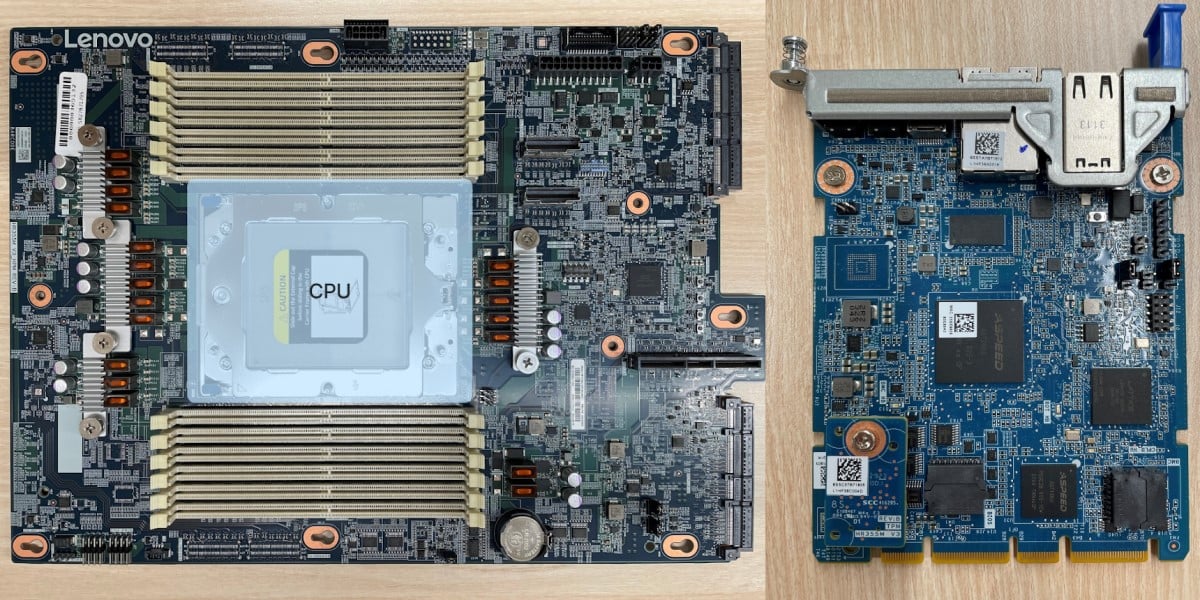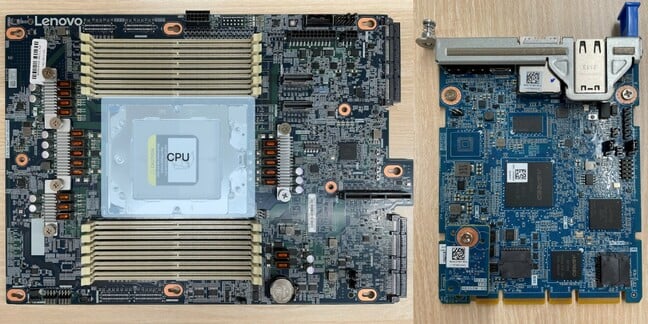Cloudflare Exiles Baseboard Management Controller From Its Server Motherboards

Cloudflare has joined the ranks of operators that believe baseboard management controllers (BMCs) no longer belong on server motherboards.
The internet-taming company on Tuesday revealed its stance in a post by electrical hardware engineer Xiaomin Shen and senior hardware systems engineer JQ Lau, who together explain that BMCs perform vital functions such as power management, sensor monitoring, allowing remote firmware updates, event logging, and error reporting.
But the pair note that many components in a server is speeding up, but BMCs are not. Because they’re on the motherboard, BMCs are also as tightly coupled to servers as is possible.
Hardware wonks therefore devised Datacenter-ready Secure Control Modules (DC-SCMs) – discrete boards that do the job of the BMC. The Open Compute project delivered a version 1.0 DC-SCM spec [PDF] in 2021 and updated [PDF] to version 2.0 in May 2023.
As Shen and Lau explain, server motherboards built to handle DDR5 and PCIE Gen 5 require printed circuit boards to have 14 or more layers. The less demanding components needed for a BMC need eight to ten layers. Decoupling the BMC from the motherboard therefore lowers manufacturing costs.
- Cloudflare loosens AI from the network edge using GPU-accelerated Workers
- No joke: Cloudflare takes aim at Google Fonts with ROFL
- Cloudflare engineer broke rules – and a customer's website – with traffic throttle
- Supermicro CEO predicts 20 percent of datacenters will adopt liquid cooling
DC-SCM modules can also be re-used, which lowers the cost of servers and reduces e-waste when server fleets are upgraded. And because DC-SCMs are modular, new ones could be added to a server to upgrade functions without having to replace the entire box. Or a DC-SCM could be upgraded in place.
Cloudflare likes the arguments outlined above so much it built servers to make them possible and will put them to work in its own datacenters.
Lenovo scored the gig to build them.
Cloudflare has also released its design as an Open Compute project, under the name Project Argus [PDF].
“At the heart of the Project Argus DC-SCM is the ASPEED AST2600 BMC System on Chip (SoC), which when loaded with a compatible OpenBMC firmware, provides a rich set of common features necessary for remote server management,” Shen and Lau wrote. “ASPEED AST1060 is used on Project Argus DC-SCM as the HWRoT solution, providing secure firmware authentication, firmware recovery, and firmware update capability,” they added, continuing “Project Argus DC-SCM 2.0 uses Lattice MachXO3D CPLD with secure boot and dual boot ability as the DC-SCM CPLD to support a variety of IO interfaces including LTPI, SGPIO, UART and GPIOs.”
Shen and Lau also revealed that Project Argus is present in Cloudflare’s 12th-gen servers and promised to reveal more about those boxen soon. ®
.
From Chip War To Cloud War: The Next Frontier In Global Tech Competition
The global chip war, characterized by intense competition among nations and corporations for supremacy in semiconductor ... Read more
The High Stakes Of Tech Regulation: Security Risks And Market Dynamics
The influence of tech giants in the global economy continues to grow, raising crucial questions about how to balance sec... Read more
The Tyranny Of Instagram Interiors: Why It's Time To Break Free From Algorithm-Driven Aesthetics
Instagram has become a dominant force in shaping interior design trends, offering a seemingly endless stream of inspirat... Read more
The Data Crunch In AI: Strategies For Sustainability
Exploring solutions to the imminent exhaustion of internet data for AI training.As the artificial intelligence (AI) indu... Read more
Google Abandons Four-Year Effort To Remove Cookies From Chrome Browser
After four years of dedicated effort, Google has decided to abandon its plan to remove third-party cookies from its Chro... Read more
LinkedIn Embraces AI And Gamification To Drive User Engagement And Revenue
In an effort to tackle slowing revenue growth and enhance user engagement, LinkedIn is turning to artificial intelligenc... Read more


